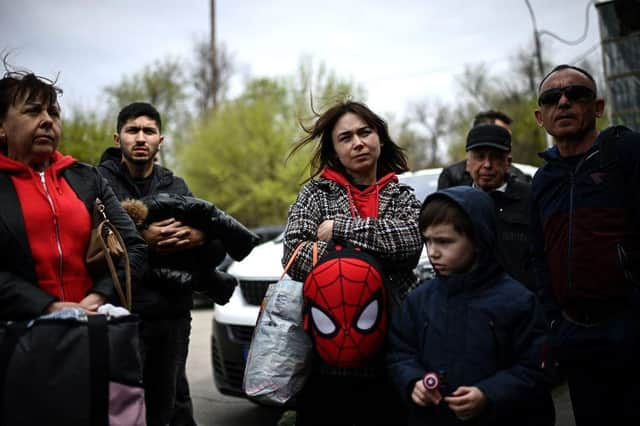Moldovan authorities accused of discriminating against Roma refugees from Ukraine


Human Rights Watch said that since mid-March, almost all Romani refugees whose housing has been processed by the government have been placed in a previously abandoned university building, where facilities are said to be inferior to those provided for other refugees.
Roma are an ethnic group originally of nomadic travellers, who now mainly live in Europe. They face discrimination in many countries, particularly in eastern Europe, including school segregation and forced sedentarisation, hate speech and hate crimes, according to the Council of Europe.
Advertisement
Hide AdAdvertisement
Hide Ad“Moldovan authorities have offered critical support to people fleeing Ukraine, but that does not excuse segregation of Romani refugees,” said Anastasiia Kroupe, assistant Europe and Central Asia researcher at Human Rights Watch. “Regardless of the economic and social problems Moldova faces, the government has a responsibility to ensure that refugees are not discriminated against on the basis of ethnicity.”
Staff and volunteers in Chisinau’s exhibition centre, MoldExpo, which serves as the country’s largest reception centre, said that city authorities had an unwritten “policy” denying almost all Roma housing at the centre.
“The government ordered that this is not a place for Romani people,” a MoldExpo employee said.
HRW interviewed members of police, border patrol, and social services at the Otaci and Palanca border crossings as well as 10 staff and volunteers working at transit and reception sites, and 13 refugees staying at three reception centres in the capital, Chisinau. It also interviewed representatives of United Nations agencies, staff at nongovernmental organisations, and two Roma rights activists in the Moldovan capital, Chisinau.
Many Roma refugees were transferred to the university building – at the Faculty of International Relations, Political Sciences, and Public Administration in Chisinau - from the Manej Sports Arena, while later arrivals said they were directed there from the border, train station, or MoldExpo reception cenre without being informed of any other accommodation options.
On April 2, Human Rights Watch researchers witnessed MoldExpo staff denying a Romani family housing at MoldExpo on false grounds that there was no space available and that they did not have the necessary documentation.
MoldExpo’s director and Chisinau’s mayor told Human Rights Watch that no such policy has ever existed. The government of Moldova had not responded to a Human Rights Watch request for comment on the findings and additional information.
“The Moldovan government should take all possible steps to fight discriminatory attitudes toward Romani people rather than enabling or reinforcing them,” Ms Kroupe said. “Romani people have the same rights as anyone else fleeing the war in Ukraine, and Moldovan authorities should set a positive example for the entire region by upholding these rights and treating Romani and other refugees equally.”
Advertisement
Hide AdAdvertisement
Hide AdSince February 24, 2022, more than 471,000 refugees have crossed into Moldova from Ukraine, the highest per capita influx to a neighbouring country. About 87,700 refugees have stayed in Moldova, one of the poorest countries in Europe.
Comments
Want to join the conversation? Please or to comment on this article.
